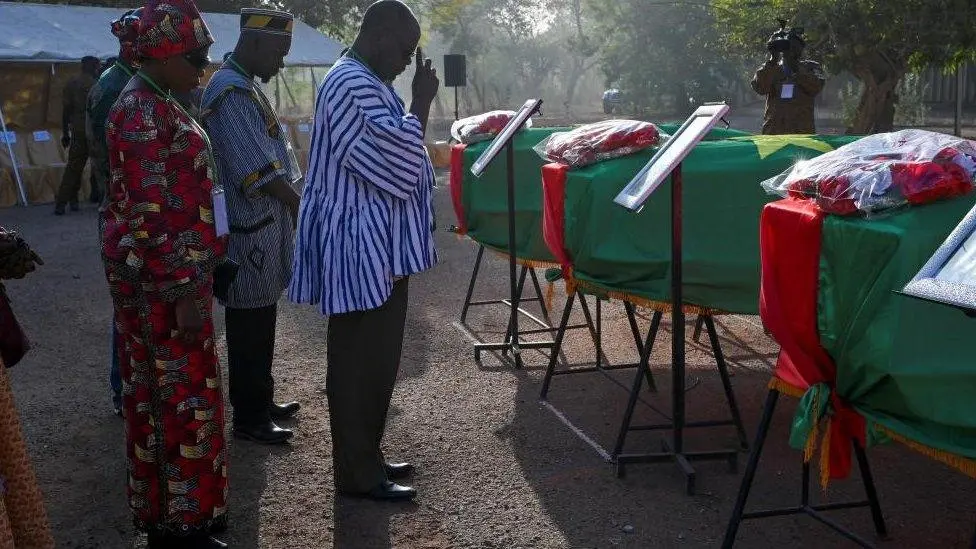On March 2, 2023, the remains of former Burkinabé President Thomas Sankara and 12 comrades, killed in a 1987 coup, were reinterred in a private funeral at the Thomas Sankara Memorial in Ouagadougou, the former offices of Sankara’s National Revolutionary Council.
The ceremony, attended by Prime Minister Apollinaire Joachimson Kyélem de Tambela and some relatives, followed a 2022 conviction of former President Blaise Compaoré and others for the murders.
However, Sankara’s widow, Mariam, and sister, Blandine, boycotted the event, objecting to the choice of burial site—the location of the 1987 assassination.
Blandine said, “Sealing the souls of the people we lost in blood, in that pain, in the place where they fell, it forces us to walk through their blood,” dismissing the ceremony as “nothing but a circus.”
Sankara’s Legacy and Pan-Africanism
Thomas Sankara, who led Burkina Faso from 1983 to 1987, remains a towering figure in pan-Africanism for his progressive policies, including promoting women in government, environmental initiatives like planting millions of trees, and boosting literacy and education.
His defiance of former colonial powers, demanding debt cancellation for African nations, cemented his status as a revolutionary hero.
However, his authoritarian rule and suppression of opponents made him vulnerable, culminating in his assassination by a hit squad led by Hyacinthe Kafando, orchestrated by his former ally Compaoré, who ruled for 27 years thereafter.
Legal Accountability and Unresolved Justice
After Compaoré’s ousting in 2014 protests, Sankara’s remains were exhumed from a cemetery on Ouagadougou’s outskirts to gather evidence for a trial.
In April 2022, Compaoré, exiled in Côte d’Ivoire, and army commander Gilbert Diendéré were sentenced to life in prison for conspiring to murder Sankara and his allies, while Kafando, who fled in 2016, was convicted of murder. Eight others received lesser sentences.
Compaoré’s 2022 apology to Sankara’s family was widely criticized as a bid to secure a pardon. With Compaoré and Kafando not serving time, justice remains incomplete.
Government Plans for Commemoration
The current Burkinabé government, led by a junta since a 2022 coup, plans a “national and international ceremony” on October 15, 2023, to mark the 36th anniversary of the killings.
The choice of the memorial site, a popular attraction with a bronze statue of Sankara, has sparked debate, as families preferred an alternative location to avoid commemorating the tragedy at the site of the violence.
Broader Implications
The reburial controversy reflects ongoing tensions over Sankara’s legacy, with critics like Blandine Sankara accusing authorities of exploiting his memory for political gain.
The case underscores Burkina Faso’s struggle to reconcile its revolutionary past with present governance challenges, including persistent jihadist insurgencies and political instability.
Sankara’s enduring influence continues to inspire pan-African movements, but the unresolved justice for his assassination highlights the complexities of addressing historical wrongs.






